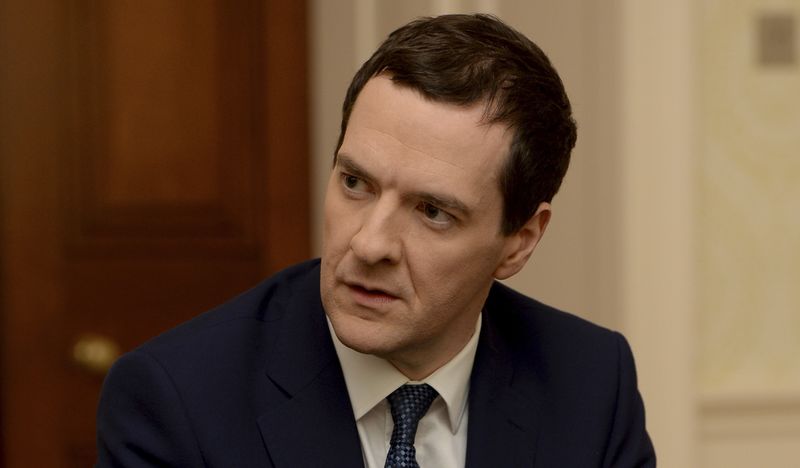By William Schomberg and William James
LONDON (Reuters) - Chancellor George Osborne looks set to concede on Wednesday that his push to fix the public finances has suffered another setback thanks to slow pay growth, six months before voters head to the polls.
Osborne will stress he is determined to fix the public finances in the coming years in a half-yearly update on the budget that he will use to reinforce his election message of further austerity.
Despite the strongest growth in the economy in more than a decade this year, Prime Minister David Cameron's Conservatives narrowly lag the opposition Labour party in most opinion polls.
But they score more highly on economic policy, and Osborne will use Wednesday's statement to firm up his plan to tackle Britain's large budget deficit.
Shortly after taking over as chancellor of the exchequer in 2010, Osborne promised to largely eradicate a massive budget deficit by 2015. Instead, as his political rivals remind voters, he is only about half way through the fix.
After the setback of Europe's debt crisis and the pinch of slower government spending in recent years, the failure of pay to pick up along with the rest of the economy since mid-2013 has deprived the government of much-needed tax revenues this year.
"He can't pin the blame on the economy doing badly," said Andrew Goodwin, senior economist at Oxford Economics, a consultancy. "This time around we have a strong economy but we're not really getting the public finances back on track."
Britain's independent budget forecasters are expected to say on Wednesday that projections they made for the budget shortfall as recently as March now look too optimistic.
Even so, Osborne is expected to pledge to wipe out the underlying budget deficit in three years, part of a plan to eventually offer generous income tax cuts. He may challenge Labour to commit to the three-year target in the hope of drawing a contrast with its plans for public finances.
Labour has said it wants to eradicate a measure of the budget deficit which excludes capital spending during the next parliament, creating room to borrow to fund investment.
Osborne may seek to help house-buyers by tweaking taxes on property purchases which have changed little over more than a decade, despite rising house prices.
There could be support for Britain's oil and gas industry, which has been hurt by plunging prices in global markets.
The Treasury said on Tuesday that a government-backed programme to encourage banks to lend to companies would be extended for a year until January 2016 but would be scaled back to only small and medium-sized firms.

The Financial Times said Osborne would propose giving corporate tax-setting powers to Northern Ireland's devolved parliament, allowing it to compete with the Republic of Ireland.
(Editing by Ralph Boulton)